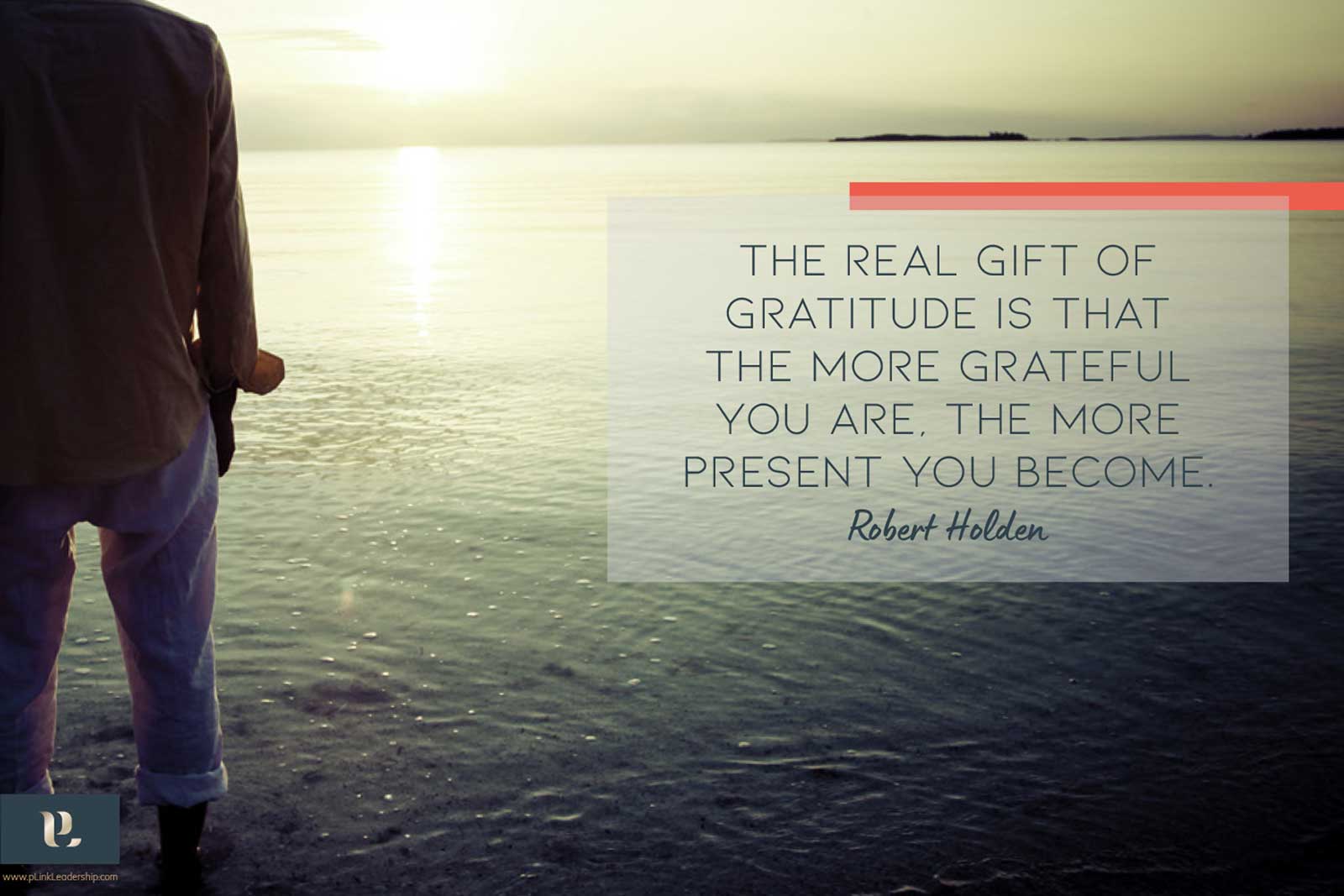“Gratitude is a currency that we can mint for ourselves and spend without fear of bankruptcy.”
Fred De Witt Van Amburgh
“I should be grateful I have a job,” said my client during an executive coaching session. We were on video, and she saw me cringe. “Why the face?” she asked. “It’s about hearing the words ‘should’ and ‘grateful’ in the same sentence,” I replied. “Instead of talking about what you should be grateful for, let’s talk about what you ARE grateful for!”
I saw the smile cross her face. “Oh, right. I see where you are going with this.”
Should, ought, and must are thoughts or beliefs that tend to contribute to worry, fear, or resentment, and they create a pessimistic outlook. When we are operating out of “should,” we aren’t acknowledging what we really feel, and we often lose track of what we really want. I suspected that my client wanted to be grateful about her job, but she wasn’t.
There were plenty of things not going well, including real challenges as the company and leadership team were navigating through change. This was creating frustration, turmoil, burnout, and yes – unhappiness. And it can be difficult to be grateful when we are unhappy.
Is that true? A common misconception is that people are grateful once they are happy. But research shows that those who practice gratitude become happier people.
Why is this?
Gratitude helps people feel more positive emotions, relish good experiences, improve their health, deal with adversity, and build strong relationships. In the field of positive psychology, research reveals that gratitude is strongly and consistently associated with greater happiness. There is high potential for improving well-being through fostering gratitude with simple exercises.
Here are some methods for practicing gratitude to contribute to increased resilience and happiness:
Gratitude lists.
List 3 things that you are grateful for at the end of each day. Do this for two weeks. List things as simple as a flower blooming, hearing a child’s laughter, or seeing a smile from someone on the street. Or big things like a roof over your head and a car to drive. Keep these in a journal or share them with someone. This is an assignment that takes very little time and provides great benefits for my clients. Not only does it increase positivity for them, it also brightens my day when they text them to me.
Thank you notes.
Write a thank you note to one person a week for 6 weeks. Studies demonstrate that, when given an assignment to write and deliver a letter of gratitude to someone, participants immediately exhibited a huge increase in happiness scores. Reading or mailing the letters to the person will also increase the happiness of the recipient—however, you don’t necessarily have to mail the letters. Merely writing the letters can improve your outlook.
Change your thoughts.
Make a generous assumption about what is going on. Research indicates that generous behavior increases happiness. What about generous thoughts? Brene Brown asks, ‘What is the fundamental belief underpinning the assumption of positive intent? Answer: That people are doing the best they can.”
“I know my life is better when I work from the assumption that everyone is doing the best they can.”
Brené Brown, Dare to Lead
Eliminate complaints.
Put on a stretchy bracelet, and every time you hear yourself complaining, move your bracelet to your other wrist and start over. Complaining is an epidemic that destroys happiness, relationships, health, and success. The problem is that most people aren’t even aware when they complain. Will Bowen, at A Complaint Free World, distributed purple bracelets and challenged the members of his congregation to go 21 days without moving the bracelet. (Most people take months to get 21 complaint-free days!) Take the challenge!
These are simple practices, but not necessarily easy. My client chose to create her own happiness. She committed to starting one practice each month. Within a few months, she was enjoying work more, complaining less, and feeling much more positive.
Start with one practice that will work for you to accelerate your own positive change.



